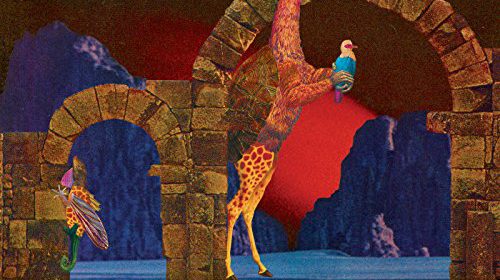Laurel Canyon Radio’s Top 10 Albums of 2018
Well we sure did listen to a lot of stuff, and we play a lot of songs on Laurel Canyon Radio as opposed to albums, but when we look at the sum total of an artist, we often want to hear how their sound holds together on a whole album. Here are the ones we loved the most this year:
1) Cordovas – That Santa Fe
Channel (ATO Records)
This new album by roots-rock band, Cordovas, is the total package, the real deal; it comes busting out the gate wide-eyed and bushy-tailed, ready to take on the world like a glittering rattlesnake.
Come to think of it, “wide-eyed” is probably not the most accurate descriptor for what this album sounds like. If it was possible for music to be half-drunk, sweating profusely beneath a wide-brimmed hat, dragging on an enormous spliff while kicking its cowboy boots in the dust – then this would be that type of music. Good time, hot summer night rock ‘n’ roll just like Mama used to make. Mama being Jerry Garcia or Gregg Allman or Gram Parsons. Or maybe all three. Let’s not get into the details, man. Pass that doobie.
In all seriousness, across this luxurious, exquisitely produced album, you hear all of the things you’re imagining in your head and then some. For one thing, it seems like there’s about thirteen people singing on it. At least. As it turns out, everybody in The Band sings – and they all have mighty fine voices. You know the interplay of unique voices on records like American Beauty, Sweetheart of the Rodeo and Music from Big Pink? Cordovas have got it down. Each and every Cordova sounds like they should be the ‘lead’ vocalist, whatever that means. They’re basically all great.
A few words on the incredible production and mix: Tthe piano gleams and thrusts lustily in the right channel of pretty much every song. There’s a stinging rhythm guitar in the left. The meaty, corn-fed bass struts right there between your left and right eyebrow. And the drums! Shit, partner. Then you’ve got those voices riding above it all, bouncing off the inside of your dome like it was an old church down in New Mexico.
There’s no point singling particular songs out for praise, because they are all superb. Maybe the country honky-tonk of “Standin’ on the Porch” is the sexiest thing here. Then, maybe it’s the honey-ed grooves of “Frozen Rose”, which sounds like The Grateful Dead covering The Band in heaven. Or maybe the Band covering the Dead. A sure-fire album highlight is “Santa Fe”, which was probably communicated to Cordovas by the ghost of Gram Parsons. Or something like that.
There’s also plenty of vitality and rhythmic complexity, enough versatility and diversity here to suggest that they’d be just as incredible live, too. But unfortunately, they recently completed a run of U.K. dates, which means most of us missed them this time around. Let’s not make that mistake again.
2) Charley Crockett – Lonesome As A Shadow (Son Of Davy Records)
What is American roots music, or “Americana”? It is the founding musical art forms of America that sprang from the early settlers of the continent which over time have intertwined with each other, forming a strong, cohesive trunk where new branches sprout from and support new life, but with all veins leading back to a greater foundation rendered sturdy and nourishing from deep roots, supported by decades upon decades of devotion to art forms, and brought under one phylum from their timeless nature.
This is how traditional country can feel so close to old blues and primitive rock and roll, and even Cajun music and ragtime soul settle into the equation. They’re all different, but they’re all the same because it’s the music that came before, and the music that will always be, regardless of the direction the fickle winds of trend or popular culture blow.
Rarely, if ever before have we seen an artist who illustrates both the complexity of American roots music, yet ratifies their striking similarity as Charley Crockett. He possesses the ability to intuitively blend various roots forms together naturally because he holds by God authenticity in multiple cultures where specific strains of roots music originated from. He is of both Caucasian and Creole decent, raised partly in both Texas and Louisiana, and is able to draw a direct line of descendants between himself and a famous American folk hero named Davy. Charley Crockett’s accent isn’t an affectation. His style isn’t adopted. Like other old souls such as Pokey LaFarge, this is not an act. Charley Crockett is acting the only way he knows how, which is to be himself.
 Charley Crockett has paid his dues in country, and in music. He spent years busking all around the United States and world, from the deep south to the West Coast, and even into Europe and North Africa, perfecting his particular strain of blended roots music for the spare change of passers by. For the last couple of years, he’s been cutting his teeth opening for Oklahoma’s Turnpike Troubadours, and that touring experience has garnered him a strong following. When he finally landed a record deal with the independent-minded Thirty Tigers, the first thing he did was release a 15-song compendium of classic country covers, not in a bid to become a cover band, but to prove his devotion to the music before venturing out to make his own.
Charley Crockett has paid his dues in country, and in music. He spent years busking all around the United States and world, from the deep south to the West Coast, and even into Europe and North Africa, perfecting his particular strain of blended roots music for the spare change of passers by. For the last couple of years, he’s been cutting his teeth opening for Oklahoma’s Turnpike Troubadours, and that touring experience has garnered him a strong following. When he finally landed a record deal with the independent-minded Thirty Tigers, the first thing he did was release a 15-song compendium of classic country covers, not in a bid to become a cover band, but to prove his devotion to the music before venturing out to make his own.
Lonesome As A Shadow is hard to define, and easy to love as Charley Crockett comes across as part Hank Williams, part Otis Redding, yet all himself. Don’t expect an exclusively country music affair from any song. In fact Crockett may be at his best here when he finds a soulful groove and sticks to it, like in “If Not The Fool” and “Oh So Shaky.” You will hear some steel guitar on this record, but you will also hear plenty of vibrato from the organ, and a few horns.
The writing of Lonesome As A Shadow is mostly where the country influence emerges. Songwriting may not be the primary reason to listen to this record, with some of the songs and phrases feeling fairly stock. But as opposed to trying to woo you with eloquent poetic turns or involved character narrative, it’s Charley Crockett’s folksy language, simple sentiments, and honest delivery that make the songs endearing, and at times, enriching, like Hank Williams and other early American music writers did.
Some will find it too arduous to make it past what sounds like a lisp in Crockett’s singing, while others will find this to be the marker of character they’re looking for in music. Charley Crockett sings how he talks, and he lives what he sings. The product of a single mother and street performing, he’s real world wise, and when he talks about wicked women and being as lonesome as a shadow, or feeling lost without a home in the modern world, they come as first hand accounts.
The songs of Lonesome As A Shadow also come and go very quickly. Out of the 12 tracks, only one is longer than 3 minutes, and 8 of them clock under 2 1/2. Some of the selections feel a little undercooked. They needed an extra verse to help you relate to the character, or could have benefited from a guitar solo or another pass by the horn section. It’s also fair to note that if you check the length or composition of your average Hank Williams song, the same could be said. But when Charley Crockett hits on something, which is usually more of a groove than a melody, he really sits down in it, and makes the moment sublime.
American roots music is a brilliant tapestry composed of rich and diverse cultures all coming together for strength and camaraderie in an era when the past is to easily, and to quickly cast off or left behind. Authentic characters like Charley Crockett remind us of who we are, and where we came from, regardless of our disparate backgrounds. They act like buffers to the rabid gentrification of culture, and awaken ghosts in the sounds they compose, and the stories they tell. Lonesome As A Shadow feels more like a start than a peak, but it’s a very promising one from a performer who embodies the spirit and compositional makeup of American roots music like few we’ve seen before.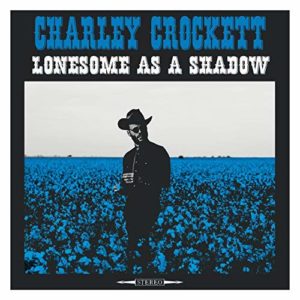
3) Lera Lynn – Plays Well With Others (Single Lock Records)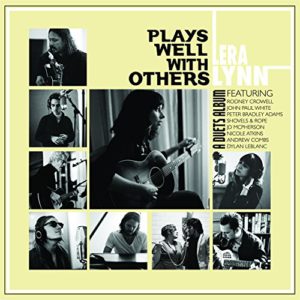
Finding your voice, as an artist, is a multi-faceted endeavor. There’s the style of singing that, albeit weighted with inherent gifts, still demands work on technique and timbre to be really great. Then there’s the craft of songwriting which requires even more effort to hone. Figuring out what to say and how to say it, both lyrically and musically… well, most spend a lifetime chasing that muse and perfecting that talent.
With 2013’s The Avenues, Lera Lynn roamed around the grittier edges of Americana, tempering the occasional snarling guitar with her beautifully gauzy voice. On the 2016 follow-up, Resistor, she explored the somewhat pop-punk elements of rock & roll. Both efforts were solid, for sure, perhaps helping her find what fits by discovering what doesn’t.
For her new release, Plays Well with Others, Lynn takes an entirely different musical tack — writing and recording a set of duets featuring Rodney Crowell, John Paul White, Andrew Combs, Dylan LeBlanc, Nicole Atkins, Shovels & Rope, JD McPherson and Peter Bradley Adams. It’s a fascinating case study, when viewed through the lens of an artist searching for their sound, as each song more closely reflects the collaborator’s style than Lynn’s. And, yet, she never gets lost in the mix. It still feels like a Lera Lynn record… just one unlike we’ve ever heard before.
Plays Well really does play well, as Lynn steps up and leans back to meet her co-makers where they are. She could easily overpower Adams’ understated vocals on “Same Old Song,” but she doesn’t. Instead, she coaxes him to a middle ground — one salted with swelling strings and peppered with a slinky double-bass. Similarly, on the first track featuring White, “Lose Myself,” Lynn uses her voice as a counterpoint to his, each playing off each other is ways both subtle and sensual. Lynn clearly chose her contributors carefully.
While the songs across all of Plays Well are worthy in their own right, the vocal interplay is what makes the whole affair truly captivating. Perhaps where those two factions come most magically together is on “What Is Love,” featuring LeBlanc. Wielding an acoustic guitar-driven ear worm of a melody, the two harmonize so hauntingly that it’s hard to tell where one ends and the other begins.
Other highlights include Crowell playing the part of the devil on the sly saunter of “Crimson Underground,” Shovels & Rope pushing and pulling their way through the Southern swagger of “Wolf Like Me,” and Atkins making a left turn into the throwback pop of “In Another Life.”
It is as yet impossible to prove that Plays Well with Others has defined — or even refined — Lera Lynn’s voice in any way. But it is absolute evidence that she can play on pretty much any field with any one, and play very, very well.
4) Brothers Osborne – Port St. Joe (EMI Records)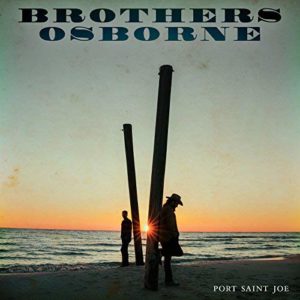
Heretofore, the greatest asset of the Brothers Osborne has been that they’re not Florida Georgia Line. This is how the singing and guitar playing brother duo hopscotched Beavis and Butthead to become the shoo-in duo for all of mainstream country’s industry awards, despite having not nearly the commercial prowess, or frankly, the influence Florida Georgia Line has had for better or worse (mostly worse).
As encouraging as it is to see human beings capable of speaking in complete sentences being rewarded for their efforts as opposed to the contrary, there’s also a reason the recent installment of the ACM Awards moved the presentations for both Brothers Osborne’s trophies (Video and Duo of the Year) to outside of the telecast window, and added Single of the Year to the telecast despite being left off in previous years, and the winner Sam Hunt not even being on the premises to accept the award. It’s because despite the continuing accolades and critical acclaim, very few people really know or care who or what the Brothers Osborne is.
This is partly the fault of the brothers themselves. Unwilling to find a lane and stick to it, their previous EP and full-length debut resulted in sort of a mishmash of popish radio singles, self-indulgent hard rock forays, and maybe a few rootsy and bluesy numbers. They showed promise, but no solid direction. And despite scoring points with the press from their willingness to speak on social causes, this isn’t really something you can or should score as a musical contribution, despite the affection it’s created for the band among country music critics.
So here they are with their second album Port Saint Joe being praised to the rafters, and for the most part it’s worthy, not just for the overall quality, but in making headway against the burden of the Brothers Osborne being unable to define themselves and separate from the herd. You don’t hear really any of the poppy singles, though this won’t do them any favors in spreading their musical seed. They’re definitely gravitating more towards a rootsy and rock ‘n roll sound, which at least limits the scope they try to cover. And there’s quite a few by God country songs in the mix, both in the style and the writing, making them much easier to get behind.
For the Brothers Osborne to work beyond winning awards, they don’t need radio necessarily, though any artist would be a fool to turn it down. What they need are those grassroots fans, those Chris Stapleton converts and serious country listeners who will nod their head in approval, even if they don’t count themselves as dedicated followers. Port Saint Joe goes a long way to securing that.
John Osborne is a great guitar player and composer, and they would be fools not to exploit that as they do in their explosive and extended “Shoot Me Straight.” T.J. Osborne has a billowy, deep voice that’s great for country music, which he uses well on the rootsy “Tequila Again” co-written with Kendell Marvel, and another well-written and rootsy song, “I Don’t Remember Me (Before You)” Shane McAnally helped pen.
But then at other times the album veers into the more caricaturist take on country, like in “Weed, Whiskey, and Willie.” I get it, it’s a fun song, and some of the turns are well done. But can we stop making Willie synonymous with weed? There’s other things he’s known for, and this song has been done so many times. Marijuana is Class A consumable no different than corporate beer or full size domestically manufactured pickup trucks, despite the possibility of ending up in the clink if you get pinched for it in rural Oklahoma. Selling your music with weed isn’t edgy, it’s about the most conformist thing you can do in 2018, and the name dropping doesn’t help.
The brothers pull a similar move with Hank Williams and George Jones and the name dropping and stereotyping on “Drank Like Hank.” You also wonder when listening to “Pushing Up Daises (Love Alive)” and “A Little Bit Trouble” if producer Jay Joyce is trying to take them in the whole east Nashville/Anderson East throwback soul direction, which confounds the “Who are the Brothers Osborne?” topic when we’re supposed to be solving it, as does the mostly funky, but still kind of poppy “A Couple Wrongs Makin’ It Alright.”
But you can look for things to complain about with Port Saint Joe all day, or you can marvel that a record like this is getting made in the mainstream at all, adjust your perspective to what their peers are doing in the industry, and be both pleasantly surprised, and valuably entertained. A lot of these songs have been done before, but you can’t listen to a song like the final track “While You Still Can” and say it’s not quality. It may not be on par with your favorite independent or Americana band, but Brothers Osborne is definitely part of the current mainstream rebirth we’re seeing in a direction back towards the roots of the music.
It still may not be easy to answer the question, “Who are the Brothers Osborne?” And that question may continue to be broached by mainstream and independent fans alike. But we know the answer is something that’s way better than Florida Georgia Line, and better than most coming from major labels on Music Row. It’s organic and real, and hopefully this is the duo whose influence will be spreading in country music in the coming years as opposed to the alternative.
5) The Mulligan Brothers – Songs For The Living And Otherwise 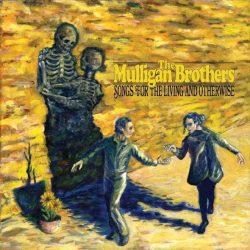 (Southern Routes Records)
(Southern Routes Records)
Some artists spend their whole careers trying to find their sound or create a piece of work that defines them as a band and The Mulligan Brothers have done just that on their third full-length album in five years, the magnificent, ‘Songs For The Living and Otherwise‘. Following on from their excellent self-titled debut and sophomore record, ‘Via Portland‘, The Mulligan Brothers have capitalised on the formula that has worked so well for them in the past and then some.
Since Via Portland, the group has parted ways with one of their original members, Gram Rea, and added the first ‘Mulligan Sister’ – Melody Duncan on fiddle – who also contributes some backing vocals and brilliant vocal harmonies. Their self-produced third record sees the band elaborate on the sound that they have previously established, and with the aforementioned line-up change and their time spent in their studio, the band have been allowed time to focus on the craft of their songs, at their own pace and it has seemingly had endless benefits as the result is an accomplished 11 song set which never falls flat.
Opener, ‘The Deal’ is a perfect transition into the new chapter of their life as a band and picks up where the band left off on their previous record, largely driven by acoustic guitar and the soothing tone and personal lyrics of lead vocalist and songwriter Ross Newell, whilst allowing the rest of the band space to add minimalistic instrumentation before building into an upbeat full band bridge with soon-to-be live favourite sing along vocals. ‘Roseanne’ follows immediately with Newell swapping his gentle vocals for something a little more soulful and a blues harp to complement the overall vibe of the song.
‘Possession in Gm’ is the first song to come a little out of leftfield with Newell once again changing things up and adopting a low-key delivery as the band attempt their first character based song which also sees Melody Duncan take her first lead vocal section and really make her mark on the song as the vocalists trade verses back and forth. Although the track isn’t what you would expect from the group it further cements the band’s ability as songwriters and performers and keeps the record interesting.
Throughout ‘Songs For The Living and Otherwise‘, there are countless moments of excellence, largely down to the fact that each of the musicians in the group are talented in their individual field but also understanding of the songwriting and how to use their instruments to evoke emotion and complement the tone of the song. ‘Ghost Town’ is what could be described as a classic The Mulligan Brothers song, ‘Loving You Is Easy’ is a real earworm that will be stuck in your head for days but the centrepiece of the record and album highlight is ‘Great Grandaddy’s War’ which is arguably the group’s best, and most personal, work since their humble beginnings five years ago – a beautiful introspective ballad, with accompanying strings and harmonies which contribute to the experience.
The second half of the record follows suit in that it sees the band experiment with some different sounds, ‘I Know That Man’ is a fast, country song featuring an extended fiddle solo, foot stomps and a gravelly vocal delivery, lead single from the album ‘Devine Design’ is a harmony-filled, mid-paced track and would serve as a great introduction to those who haven’t heard the group before, and ‘I Need To Get Out’ is the album’s final song and experiments with an electronic drum sound and other instrumental effects, and is a brilliant culmination to a brilliant record.
In summary, ‘Songs For The Living and Otherwise‘ deserves to be heard in full, from start to finish and will serve as a stepping stone for the band to become one the biggest names in the Americana genre in years to come.
6) The Sheepdogs – Changing Colors (Dine Alone Music)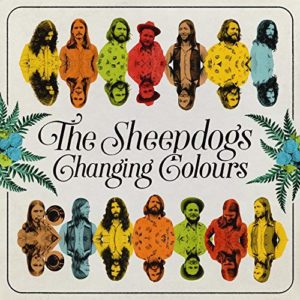
You’d be forgiven if the vision of Canada’s rolling plains, shoulder-high wheat, and farm country didn’t immediately send you to thoughts of southern rock. Canada’s prairies aren’t exactly Alabama or the bayou, but this is exactly where The Sheepdogs hail from, and southern rock is exactly what they do. It’s their bread and butter. Saskatoon’s favourite sons have made a living on albums dripping with Lynyrd Skynyrd, The Allman Brothers Band, and Crosby, Stills & Nash. However, their latest album, Changing Colours, goes further. Beyond the big guitar-driven drawl and Ewan’s velvety tones is a new, wider, more-evolved sound. This album is a smorgasbord of visuality. Embedded deeply in the ’70s, Changing Colours would fit perfectly as a soundtrack to a Quentin Tarantino movie. I almost feel bad digitally streaming this album. Listening to it on anything but vinyl is a crime against music. Seriously, does this record come with a hair pick?
“Nobody” and the first single, “I’ve Got a Hole Where My Heart Should Be,” kick off the disc in typical toe-tapping, jean-jacket, Sheepdogs form. All guitar, all rock continues into “Saturday Night,” making the ‘dogs the latest in a string of bands to sing about fighting on a Saturday night. (Is Saturday night really for fighting? Am I doing something wrong? Mine tend to include hockey, Pringles and Netflix.)
After the first three songs, Changing Colours seems to be another great, typical Sheepdogs album. But that’s where you’d be wrong — about the ‘typical’ part, anyway. By the time the album’s second single, “Let It Roll,” reaches your ears, you are now entrenched in a campfire sing-a-long that wouldn’t feel out of place on the Beatles Sgt. Pepper’s album. “The Big Nowhere” immediately transports you to New York City in the late ’70s — big fur collar on your leather jacket and all — before you fall back into psychedelic swirling patterns, Fritz the Cat, and losing yourself in the organs. “I Ain’t Cool” and its horns quickly snap you back from your acid trip and back to your VW van with your friends. But if you’re afraid this record isn’t going to rock enough, I direct you to track seven, and future crowd favourite “You Got to Be a Man.” You can’t help but imagine this song being played live, fans jumping and beach balls abounding. “I’m Just Waiting for My Time” is a deeply-brooding, haunting song. It’s a slow burn; acoustic and building. It plays as an ode to Leonard Cohen. It might not only be the best song on the album, but one of the best Sheepdog songs to date. “Up in Canada” is a country-esque nod to the band’s homeland. Windows down, cruising along the Trans-Canada Highway. The song is an escape as trees, prairies, and carved-out mountains pass you by. You can’t help but smile. It all ends on a strong, Pet Sounds-like track with “Run Baby Run.”
The Sheepdogs are pros at making consistent albums through and through, showcasing their wide range of talents in the mix of Canada’s premier songwriters. This one is no different. I don’t want to say their music sounds like you’ve heard it before, because you haven’t. Their albums just feel like home. Clocking in at 17 tracks, included are a few short instrumental ditties aimed at showing off, because they’re The Sheepdogs — and you’re not.
Changing Colours drops February 2. Run, don’t walk, to your local record shop to pick up a vinyl copy. Buy a record player if you have to. Seriously, your ears will thank you. If you must listen to it digitally, iTunes has you covered for $10.
If you haven’t checked out The Sheepdogs live, shame on you! They hit the road in support of their new masterpiece starting in February. They’re crossing Canada in the dead of winter to bring some much-needed rock ’n’ roll. Show ‘em some love.
7) John Prine – The Tree of Forgiveness (Oh Boy Records)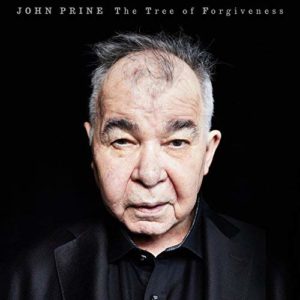
John Prine wants a cigarette, but he can’t have one. In the last 20 years, he’s had cancer twice. Sometimes he considers standing next to smokers outside restaurants just to get as close to that experience as he can, that smell, that ritual. He’s 71 years old now. He could be retired from songwriting and no one would blame him. But it’s tough to quit two 50-year-old habits, so he’s got a new album out called The Tree of Forgiveness, his first collection of original songs in 13 years.
But gone is the John Prine who, in his 20s, wrote both the saddest song in the world, “Sam Stone,” and the saddest song in the universe, “Hello in There.” That sweeping heartbreak, that pain, has turned more peaceful with age. Bob Dylan once said that Prine’s “stuff is pure Proustian existentialism. Midwestern mind trips to the nth degree.” That’s probably fair, but on this album, Prine’s writing is more economical. He doesn’t say anything he doesn’t need to, leaving the space in his songs to do it for you. He lets the mood talk.
This album does not contain a line like “Jesus Christ died for nothin’, I suppose.” It contains lines about porches and washing machines and shadows on ceilings. But in their own quiet, ramshackle ways, they’re about being alive and what it means to be alive. There’s a hard-won wisdom to all these songs, a wisdom that can only come with age, where pork chops can be one of the most important things in the world, where joy and divinity can be found in the everyday, on a porch, looking at clouds. It takes age to realize that truth, the thing we fight so hard to find, can be mundane.
8) Mipso – Edges Run (Antifragile Music)
A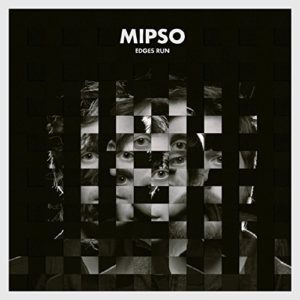 mericana quartet Mipso hail from the string music hotbed of North Carolina, and their home has always strongly colored their bluegrass-tinged indie-folk sound. But when the band decided they wanted to work with producer Todd Sickafoose for their new album Edges Run, it necessitated a temporary relocation across the country to Eugene, OR in the dead of winter. Whether the change of scenery or changes in various band members lives, including relationships ending, creative growth, and death of friends and family, had more to do with the resulting album is unknown. What is known is that Edges Run is a major step forward for the band both musically and lyrically.
mericana quartet Mipso hail from the string music hotbed of North Carolina, and their home has always strongly colored their bluegrass-tinged indie-folk sound. But when the band decided they wanted to work with producer Todd Sickafoose for their new album Edges Run, it necessitated a temporary relocation across the country to Eugene, OR in the dead of winter. Whether the change of scenery or changes in various band members lives, including relationships ending, creative growth, and death of friends and family, had more to do with the resulting album is unknown. What is known is that Edges Run is a major step forward for the band both musically and lyrically.
Throughout Edges Run, the band plays with lyrical conventions. The album’s undeniable standout track, “Oceans,” is not only arguably the darkest in Mipso’s career but also a song that lyrically enigmatic. Libby Rodenbough, whose voice is a perfect fit for the darker material, sings about when “word got out that it was gone” and “silence all around and dry sand as far as I can see.” Is this to be taken literally, the tale of a narrator witnessing a world falling into ruin due to climate change? Is it a metaphorical destruction of some aspect of her life? Mipso isn’t telling. But when Rodenbough, with a blend of despair and resignation, sings the chorus “they say in time it’ll get easier. They say we’ll figure it out in a while. But I was born in a world with oceans. And now I’m ready to die,” you know it’s more than a standard lost love.
Another song that is deceptively deep is the album’s closer “Sleep, Little Dreamer.” Voiced by Joseph Terrell this time, the song is on its surface a fairly standard lullaby that could be sung as is to a toddler. But when the previously mentioned deaths among friends and family that influenced the writing of Edges Run are factored in, lyrics like “Both the rising and the setting ones, they’ll be resting up for the dreamer now the day is done” take on a new significance.
But don’t think everything on Edges Run is a downer. They also have some fun with wordplay, especially on “Moonlight.” Another Terrell-sung tune, he begins “I’m not a bird with a broken wing. I just felt like walking for a while. Shame to waste such a pretty night.” Later he insists “if you see me sometime soon looking pale and blue, that’s just the moonlight.” That could be bravado in the vein of Alice Cooper’s “I Never Cry” but Sharp delivers the lines with such gusto that he pushes you toward believing that not every depressing musical trope is a tell. Sometimes the moon is just the moon.
Whether it’s a natural maturation or the new collaboration with Sickafoose, this is a significant evolution for a young band. Edges Run finds Mipso breaking out from the glut of North Carolina-based indie-folksters and into more diverse territory.
9) Blackberry Smoke – Find A Light/The Southern Ground Sessions (3 Legged Records)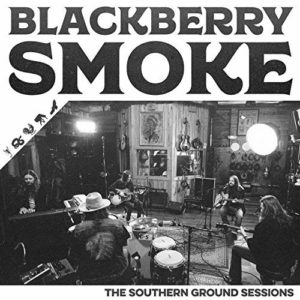
Blackberry Smoke has done it again, and I cannot confirm or deny that this mild-mannered, professional music reviewer at one point found himself standing precariously on the top of a couch, back arched and mouth agape, blaring air guitar while supposed to be objectively listening to this record, and feigned cleaning cobwebs off the knick knack shelf when walked in upon.
What the hell happened to rock and roll? What poor, miserable bastards have to grow up in a world where the preeminent rock bands of their generation are Arcade Fire and Imagine Dragons? In a just world, Cody Jinks and the Turnpike Troubadours would regularly be played on mainstream corporate radio, Dale Watson would be a member of the Grand Ole Opry, and Blackberry Smoke would be burning down arenas filled to capacity with throngs of out-of-control fans trying to crash the stage, and a militarized police force having to use water canons to disburse the crowd after the show.
Screw talk of saving country music, or even notions of “Southern rock.” With their latest album Find A Light, Blackberry Smoke prove they’re singlehandedly saving rock and roll and everything that stands for—Southern, countrified, and everything in between. Blackberry Smoke transcends genre—in the good way where you’re so badass, everyone wants to claim you as their own, and no single scene can contain you.
These Atlanta boys are on one hell of a run at the moment, delivering new, original records in three out of the last four years, with both of their last two albums going #1 on the country charts, including 2015’s Holding All The Roses becoming the first independently-released record to do so in modern history. They’re like Sturgill Simpson of country rock, and we’re not making damn near enough noise about them. Blackberry Smoke even produced this latest effort themselves, and beyond other things, Find A Lightis an unbridled romp into the unrelenting power of the fat and fuzzy Southern harmony riff set into grooves so righteous, they remind you of the Golden years of Southern-infused classic rock greatness the likes of which we haven’t heard in decades.
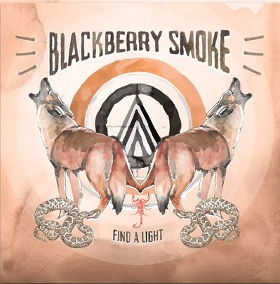 Where the arc Blackberry Smoke carved with their previous two records was a slow, but purposeful maturing to a more songwriter-based country sound punctuated with the occasional Southern rock romp, Find a Light is vice versa. Prepare to accidentally piss off your neighbors when you lose all self control piping up “Flesh and Bone,” “The Crooked Kind,” “Nobody Gives A Damn,” and especially the epic, Gospel-soaked anthem “I’ll Keep Ramblin’” featuring pedal steel maestro Robert Randolph.
Where the arc Blackberry Smoke carved with their previous two records was a slow, but purposeful maturing to a more songwriter-based country sound punctuated with the occasional Southern rock romp, Find a Light is vice versa. Prepare to accidentally piss off your neighbors when you lose all self control piping up “Flesh and Bone,” “The Crooked Kind,” “Nobody Gives A Damn,” and especially the epic, Gospel-soaked anthem “I’ll Keep Ramblin’” featuring pedal steel maestro Robert Randolph.
Sure there are plenty of Southern rock and country “bands” out there thinking if they put a Confederate flag head on their bass drum and name drop Gregg Allman, that’s all it takes. Hell Blackberry Smoke had Gregg Allman on their last record, and though no disrespect is meant towards their previous two albums, Find A Light might be the one to pick out of the stack if you’re looking for a place to start.
Blackberry Smoke doesn’t give a shit anymore about trying to fit into anyone’s preconceived notions of what they should be. Find A Light is the band unsheathing the guitars and going for it. In this calculating music world where so many bands are obsessed with their public perceptions, it’s refreshing, needed, well past due, and welcomed to have a band indulge their barbaric rock and roll masculinity and let the cards fall where they may.
But Find A Light is blessed with variety as well, finding quiet moments with Amanda Shires on the heartbreaking “Let Me Down Easy,” and with The Woods Brothers via the delicate harmonies on “Mother Mountain” that may remind some of Crosby, Stills, Nash, and Young. These guys prick such an array of emotions and eras in their efforts with Find A Light, and revive sounds that are going so incredibly underserved except for backlist titles from classic rock greats. Yet their efforts to record roaring anthems and tear-soaked ballads are in the right here, the right now, in the modern context, hoping to become the classics for future generations, and replenish what ClearChannel ran into the ground for decades on classic rock stations.
bridge of “Medicate My Mind” that meanders too much. But hey, they never claimed to be Rembrandt. Blackberry Smoke is saying, “We’re here. It’s our time to step up and save the Southern music, be damned what anyone else thinks is cool or relevant.” And that’s exactly what they accomplish on Find a Light.
10) Clay Parker and Jodi James – The Lonesomest Sound That Can Sound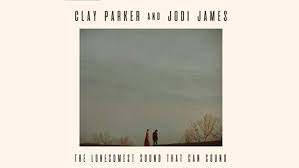
Clay Parker and Jodi James are a music-making couple from Baton Rouge, Louisiana. This album, which looks like it’s maybe their second or third, is a superb collection of country-leaning folk, which I guess these days is called Americana.
The two were making music separately when they met while playing bills together in 2009. Since joining up they’ve taken some inspiration from the life of American troubadour Woody Guthrie, traveling around the countryside and soaking up the various strains of Southern music. The title, taken from a lyric in one of these 10 songs that they all co-wrote, was inspired by a line in one of Guthrie’s songs, “When the Curfew Blows.” “Was the lonesomest sound, boys/ that ever heard sound, boys/ like the midnight wind, boy/ when the curfew blows.”
On all of these songs the two play acoustic guitars and harmonize on duets. The closest and easiest comparison is to Gillian Welch and Dave Rawlings. Most of their songs slope along at a languid pace that more than suggests a warm, humid Southern day. James’s voice when she’s singing harmony with Parker even sounds a bit like Welch’s, though less so when she’s singing solo, and Parker’s voice is more in a tenor range with a pronounced twang, sometimes rather like Gram Parsons.
They’re accompanied on most of the songs by a full band, too. Ben Herrington’s organ playing stands out as what makes their sound unique. Paul Buller contributes mandolin or pedal steel or electric guitars to each track, Clyde Thompson fiddles occasionally, and David Hinson and Micah Blouin provide the rhythm with bass and drums.
That Gram Parsons comparison is most apt on the most countryish track “Every New Sky.” Pedal steel provides lots of color and emotion to this gentle shuffle that’s a love song of sorts to someone who’s not emotionally present. There’s a pronounced Louisiana feel to many of these, particularly the brooding, swampy “Down To The Garden” where Buller has the reverb turned way up on his electric guitar and Herrington uses his organ as a drone.
And blues, of course. The penultimate track “Yazoo City” is a standout, a folksy gentle country blues that shuffles down with a railroad groove and some sweet fiddling. “Gallows Tree” is a lovely song with chilling imagery. Here’s a live video performance of that one.
Honorable Mention: Brandi Carlile – By The Way I Forgive You (Low Country 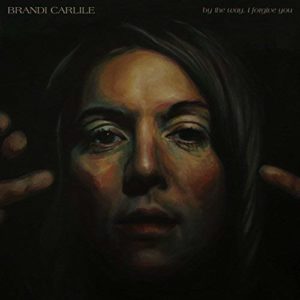 Sound/Elektra)
Sound/Elektra)
Brandi Carlile has always performed to the very back row of the arena, even when the arena was a small rock club or a mid-sized theater.
Carlile’s likely done playing those kinds of places. Last year, she landed a spot on President Obama’s playlist of favorite songs, and she released a benefit album of artists like Dolly Parton, Pearl Jam and Adele covering songs from her breakthrough 2007 album The Story. She is well on her way to big things.
And this year, she’s back with her best album since The Story, and maybe her best yet. It’s called By the Way, I Forgive You, and it features cover art by one of those Avett brothers, photography by Pete Souza (who documented the Obama White House), string arrangements by the late, legendary Paul Buckmaster, and production by Shooter Jennings and country producer du jour Dave Cobb.
That Carlile remains the center of gravity in this star-studded universe is a testament to her considerable talents. On By the Way, I Forgive You, she ably navigates a batch of songs that range from folk, country and blues to symphonic pop and rock pieces that would sound at home on a Broadway stage. No matter the backdrop, Carlile sounds completely in control.
Her powers peak on a song called “The Joke,” a grandiose anthem for the marginalized set against delicate piano and a heart-swelling string section. The chorus positively towers, with Carlile delivering its simple lesson—“the joke’s on them”—forcefully enough to reach every single struggling kid that needs to hear it.
On the piano-powered “Party of One,” which closes the album, Carlile sounds like the American Adele, right down to the crack in her voice at the song’s emotional center and the strings that envelop her in its redemptive final stanza. In “Harder to Forgive,” you can hear unforced twang in her vocals, just before the song transitions from soulful rambler into its eye-popping, mildly psychedelic coda.
Even By the Way’s low-key moments lead to drama. “Every Time I Hear That Song” opens the album with a pretty acoustic guitar line and Carlile’s voice echoing through a space so well-captured, you can practically close your eyes and see the art on the walls. (Cobb and Jennings’ production work here is delectable.) “Hold Out Your Hand” isn’t happy being just a hokey country burner; instead it explodes into a skyscraping chorus and a shout-along series of ba-da-da, ba-da-das.
Related

